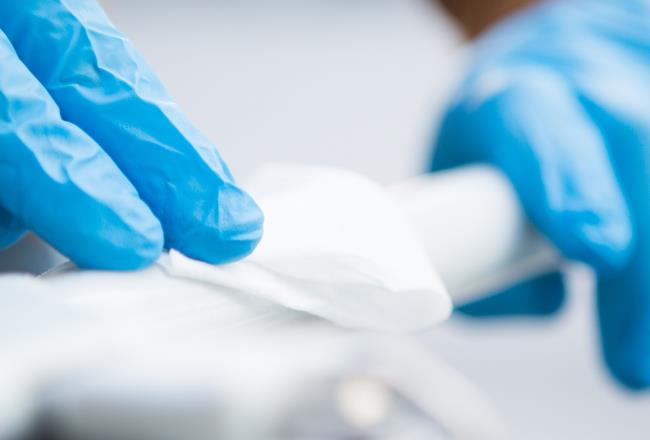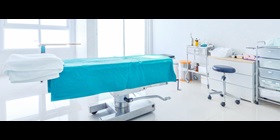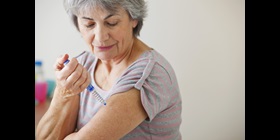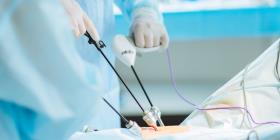
Case study
Investigating the influence of disinfectants on Makrolon®, Bayblend®, and Makroblend® polycarbonate-based materials
Covestro and Metrex joined forces, sharing their complementary areas of healthcare industry expertise, to investigate the influence of powerful disinfectants on polycarbonate-based materials, including Makrolon® M6011 FR polycarbonate and Makroblend® M5005 FR PC+polyester blend.
Frequent cleaning and surface disinfection of the materials used in healthcare settings — already proven to help reduce the risk of hospital-acquired infections (HAIs) — is more critical than ever.
Several types of chemical agents are available for surface disinfection, and their antimicrobial effects work through different mechanisms. Healthcare professionals must choose products offering compatibility to the disinfectants they are using. A common cause of premature failure of plastic surfaces found in medical equipment is a phenomenon called environmental stress cracking (ESC). Some important factors affecting this failure mode include the plastic type, chemical agent, and amount and type of stress in the part. Polycarbonate and polycarbonate blends are popular choices among medical professionals to minimize these risks.
Covestro materials are used to form numerous life-saving and life-enhancing medical devices, while disinfectants from Metrex are widely used throughout the healthcare industry. The two companies jointly tested a variety of materials and disinfectants to demonstrate the compatibility of Covestro polycarbonates with common disinfectants, including Metrex’s CaviWipes™ 2.0. According to Metrex, this new product fully qualifies for the EPA’s rigorous Emerging Viral Pathogen Claim.
“By leveraging our respective strengths and bringing together our collective expertise, everyone benefits: our companies, our customers, and most importantly, healthcare professionals and those they care for.”
As is customary for rapidly assessing compatibility of plastics to disinfectants, test specimens were pre-strained and followed several wipe and dry cycles with Metrex disinfectants to simulate actual usage. They were then evaluated by how well they retained their tensile strength.
Covestro materials developed to withstand the use of strong disinfectants performed well and retained their tensile properties in testing — Makrolon® M6011 FR polycarbonate and Makroblend® M5005 FR PC+polyester blend) are all flame-retardant housing materials with skin contact biocompatibility.
“This collaboration exemplifies how we work alongside other organizations that share our passion for solving tough challenges. Doing so spurs innovation that is instrumental to our goal of making the world a brighter place.”
Makrolon® M6011 FR and 3158 polycarbonates and Makroblend® M4000 FR and M5005 FR polycarbonate blends are the right fit for medical settings
- Skin contact biocompatible Meets the testing requirements of ISO 10995-5 (Cytotoxicity) and ISO10993-10 (Irritation and Sensitization)
- Chemical resistance Retains its strength when exposed to these chemicals
- Durability Provides excellent dimensional stability and toughness















